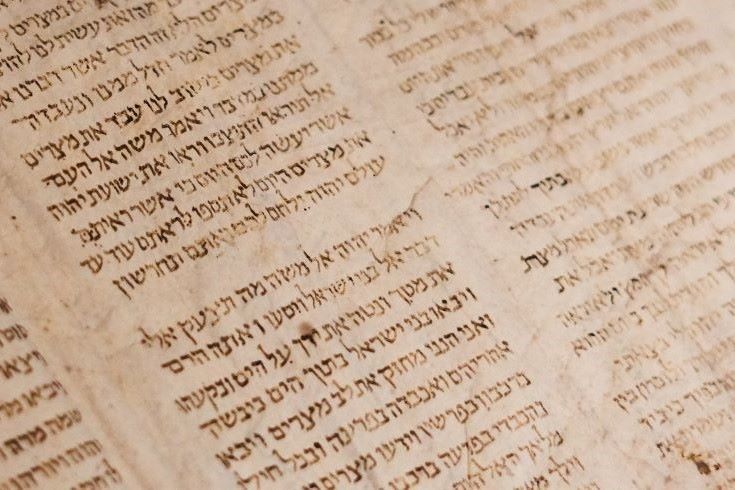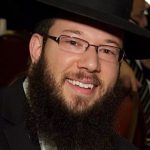By Rabbi Wendy Amsellem and Rabbi Mike Moskowitz
Editor's note: This blog post is one in an occasional series that will explore rabbinic teachings of positive masculinity.
Speaking about masculinity today, in a favorable way, is so tricky that it is often easier not to discuss it. On Rosh Hashanah however, when so much masculine G-d language is deployed, it’s impossible to ignore it. G-d is a father, a king, a stern and exacting male judge. Our reluctance to discuss positive masculinity only contributes to the paucity of proper role models. Perhaps our discomfort with the language can be channeled into a form of repentance by assiduously exploring the ways that G-d models appropriate masculinity.
The first truth that men must accept, before they can learn any positive masculinity from G-d, is that they, themselves, are not gods. G-d is rightfully at the center of the world, but men have traditionally concluded, in error, that the world revolves around them. G-d sits in judgment of humans but it is not our place to judge others. Getting past this absurd arrogance is a precondition to being able to learn how G-d's interactions with people can serve as a productive model. >
The Talmud in Tractate Sotah relates that Rabbi Chama b’Rabbi Chanina said: "You shall walk after the Lord your G-d" (Deuteronomy 4:24); but is it possible for a person to walk after the Divine Presence? Is it not written, "For the Lord your G-d is a consuming fire?" "Rather follow the attributes of G-d, G-d clothes the naked, visits the sick, comforts mourners and buries the dead.”
G-d demonstrates a caring and compassionate way of interacting with the world and we are meant to learn from those actions. The "Petach Anayim," an 18th-century mystical work by Chaim Yossi David Azulai (the Chida) reads the verse of "You shall walk after the Lord your G-d" as teaching that when we emulate the 13 attributes of mercy we must start after the ones which are names of G-d. By this, the Chida means that we should adopt G-d's merciful behavior without ever daring to think that we might actually be called to occupy the space that is G-d's alone.
The false promise offered in the garden by the snake on the first Rosh Hashanah was just that: "Eat and then you will be like G-d" (Genesis 3:5). After the sin, eight verses later, we hear: "The serpent deceived me — ה שיאני." At least then there was clarity of the mistake. The rabbis point out that the Hebrew word used here for deception has the same letters as "יש אני" (there is – I) to teach that the snake tempted us by convincing us that we could be in the place of G-d. Consequently, we ruined certain dynamics of our relationship with G-d by not seeing G-d for who G-d really is.
In the mystical tradition, through this sin we defiled the letter daled – ד, which represents dalos — humility in G-d’s names of Sha-die שד-י and Ado-ni אדנ-י, leaving just yesh יש (there is) and ani אני (I).>
 This month of Elul corresponds to the tribe of Gad גד. Their tribal position was at the front line when the nation went to battle. The stone that represented Gad in the High Priest's breastplate was the achalmah (amethyst) אחלמה, that was meant to inspire courage to continue advancing the cause. The tribe of Gad גד also represents a unique blend of confidence and humility. The ג by itself, stands for גיאות, arrogant pride, but coupled with the aforementioned ד of modesty, it creates the necessary awareness of human vulnerability to be present as self, but not for self.
This month of Elul corresponds to the tribe of Gad גד. Their tribal position was at the front line when the nation went to battle. The stone that represented Gad in the High Priest's breastplate was the achalmah (amethyst) אחלמה, that was meant to inspire courage to continue advancing the cause. The tribe of Gad גד also represents a unique blend of confidence and humility. The ג by itself, stands for גיאות, arrogant pride, but coupled with the aforementioned ד of modesty, it creates the necessary awareness of human vulnerability to be present as self, but not for self.
Hillel, who the Talmud testifies was exceedingly humble, said it best: "If I am not for myself, who will be for me. But if I am only for myself what am I – אם אין אני לי מי לי." Perhaps this is the intention of Elul as אני לדודי: the "I" must go and belong to G-d, the true Beloved.
Like the tribe of Gad, we must have the courage to continue the struggle against toxic masculinity. By remembering that all of our actions must be for G-d (and not in the place of G-d), we can end the apathy towards the mentality that boys will be boys.
G-d's forcefulness and strength are emphasized in the high holiday prayers. But G-d's might is used to protect the vulnerable. G-d has great emotional range, power, and agency — but we emphasize that G-d would prefer to forgive than to be angry. G-d uses G-d's power to elevate, inspire and empower others, not to grind them down. We can learn from G-d's attributes how to be better men and better humans. As we engage this Rosh Hashanah, let us pray for the courage and grace to find a more favorable form of being.
 Rabbi Mike Moskowitz is a Scholar-in-Residence in Trans and Queer Jewish Studies at Congregation Beit Simchat Torah in New York. (Pronouns: He/Him)
Rabbi Mike Moskowitz is a Scholar-in-Residence in Trans and Queer Jewish Studies at Congregation Beit Simchat Torah in New York. (Pronouns: He/Him)
 Rabbi Wendy Amsellem teaches Talmud and Halakha at Yeshivat Maharat.
Rabbi Wendy Amsellem teaches Talmud and Halakha at Yeshivat Maharat.